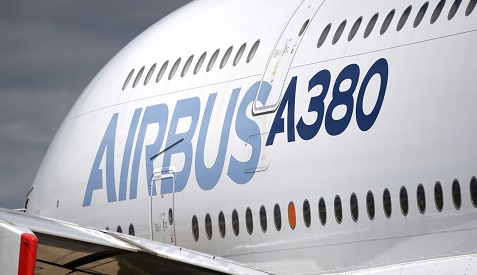Airbus scraps the A380
February 14, 2019 | Expert Insights

European aircraft manufacturer Airbus has pulled the plug on its struggling A380 superjumbo, which entered service just 12 years ago. Airbus said last deliveries of the world's largest passenger aircraft, which cost about $25bn (£19.4bn) to develop, would be made in 2021.
Background
Airbus is a European aerospace corporation, registered in the Netherlands and trading shares in France, Germany and Spain. It designs, manufactures and sells civil and military aerospace products worldwide and manufactures in the European Union and various other countries. The company has three divisions: Commercial Aircraft, Defence and Space, and Helicopters, the third being the largest in its industry in terms of revenues and turbine helicopter deliveries.
The Airbus A380 is a double-deck, wide-body, four-engine jet airliner manufactured by Airbus. It is the world's largest passenger airliner, and the airports at which it operates have upgraded facilities to accommodate it. The A380's upper deck extends along the entire length of the fuselage; it is narrower than the lower deck but remains comparable to the width of other wide-body aircraft. This gives the A380-800's cabin 550 square metres (5,920 sq ft) of usable floor space, 40% more than the next largest airliner, the Boeing 747-8, and provides seating for 525 people in a typical three-class configuration or up to 853 people in an all-economy class configuration.
As of January 2019, Airbus had received 313 firm orders and delivered 234 aircraft; Emirates is the biggest A380 customer with 123 ordered, of which 109 had been delivered.
Analysis
Airbus will stop making the A380, pulling the plug on its iconic superjumbo jet that once promised to revolutionize commercial air travel but failed to deliver on outsized expectations. The European plane maker said that it will stop delivering A380s in 2021 after its key customer, Dubai-based airline Emirates, slashed its orders for the world's largest airliner.
"It's a painful decision," Airbus CEO Tom Enders said during a conference call with analysts. "We've invested a lot of effort, a lot of resources and a lot of sweat into this aircraft." "But obviously we need to be realistic," he added. "With the decision of Emirates to reduce orders, our order backlog is not sufficient to sustain production."
The decision could hit as many as 3,500 jobs at the manufacturer, whose operations span four major European countries, over the next three years. The A380 was developed at a cost of $25 billion and first took to the skies 14 years ago. However, the giant bet that airlines would need a plane that can carry up to 853 passengers between major airport hubs didn't pay off.
The company has delivered 234 of the superjumbos to date, less than a quarter of the 1,200 it predicted it would sell when it first introduced the double-decker aircraft. Its plans were undermined by airlines shifting their interest to lighter, more fuel-efficient passenger jets that have reduced the need to ferry passengers between the big hubs.
Emirates said it would take delivery of 14 further A380s over the next two years, but has also ordered 70 of Airbus' smaller A330 and A350 models. The order cut meant keeping production going was not viable, said Airbus chief executive Tom Enders, who is due to step down in April 2019. There was "no basis to sustain production, despite all our sales efforts with other airlines in recent years" he said.
Airbus has taken a €463m charge for shutdown costs, but it is expected that the repayment of government loans could be waived to help cushion the blow. The aerospace giant said the financial impact of the decision was "largely embedded" in the firm's 2018 results, which showed a net profit for 2018 of €3bn (£2.6bn) up nearly 30% from the previous year. Airbus said it would deliver between 880 and 890 new commercial aircraft this year.
Assessment
Our assessment is that the decision to scrap the A380 is based on economics and dwindling demand for “superjumbo” aircraft. We feel that the reliance of Airbus on a single customer, Emirates, for its flagship product turned to be its undoing as the cancellation of a number of aircraft by the later compelled Airbus to draw down on its production. We feel that much like the Concorde, the A380 is being grounded by the hard truths of a commercial board – room economics that has gained better traction over popular aviation sentiments.
Image Courtesy: Sky News








Comments